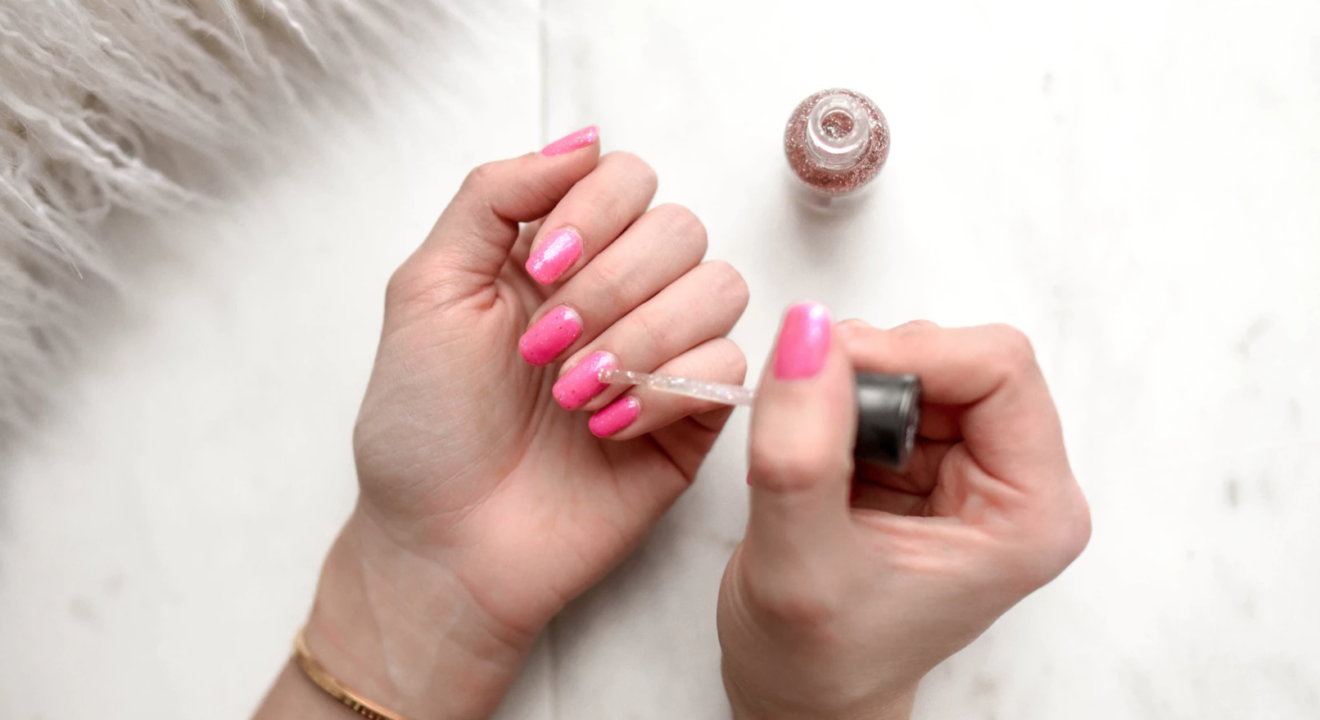Sustainability July 3, 2018
This is happening right now as you read this.


You may feel healthy and great, but did you know there are actually everyday toxins entering your body that you are completely unaware of?
Our carelessness and a company’s drive for profit leads to the potential of serious health risks. Ultimately, a lot of the products you’re using are releasing toxins into your body because a company wants to save money.
It’s important to try to stay informed. In that light, here are just a few everyday items that expose you to toxins you didn’t know about to help you reduce your exposure.
Nail polish may be a common part of your life, with regular nail salon visits and at home self-care regimens.
However, nail polish actually contains a lot of chemicals you should be weary of.
Nail polishes commonly contain three chemicals known as the toxic trio: dibutyl phthalates, toluene and formaldehyde.
Dibutyl phthalates has been linked to organ problems and endocrine disruptions. This chemical is also linked to human developmental problems, though there is currently not enough evidence to fully support this.
According to the Center for Disease Control and Prevention (CDC), extended exposure to Toluene can cause central nervous system issues, causing headaches, dizziness and fatigue.
Formaldehyde‘s short term effects are skin irritation, nausea, burning in the eyes and throat depending on a person’s sensitivity. As for long term, there are no concrete studies definitively linking formaldehyde to cancer, but there is concern. In previous studies, extended exposure to this chemical has resulted in cancer in rat subjects.
Many companies have begun to remove or lower the use of the toxic trio in nail polish. However, this often leads to the increase of other chemicals that can possibly be just as toxic. One such chemical is Triphenyl phosphate (TPP), which makes the product stick more strongly to the nail.
A Duke University study found that your body actually absorbs TPP from the nail polish through the nail. Concerns are currently leading to more research into this chemical.
Painting your nails every once in a while is pretty safe. However, if you find yourself reaching for nail polish or visiting a nail salon frequently, consider decreasing your nail polish usage or switching over to a safer alternative. Some products to consider are Acquarella and Honeybee Gardens, both of which are water-based products free of toxic trio.
The typical mattress contains a lot of petroleum-based polyurethane foam. Because of the mix of chemicals, this material is highly flammable. For this reason, the foam has to be treated and wrapped in even more chemicals to make it flame-retardant.
Polyruthenane foam breaks down over time and is released into the air you breathe. This material and the cocktail of chemicals it contains has been linked to mammary tumors, eye and throat irritation, nausea, and liver and kidney damage among many other things.
As mentioned, this foam is highly flammable and so must be counteracted with flame-retardant chemicals. These have been linked to birth defects, infertility, reduced IQ scored and behavioral problems, disrupted hormones, reduced sperm count and, in intense cases, cancer.
To combat this, look into organic mattresses labelled Global Organic Textile Standard (GOTS) or Global Organic Latex Standard (GOLS). These labels guarantee 95% of the materials used are organic.
3 Shower Curtain
Shower curtains are an unexpected source of toxins we expose ourselves to every day (unless you have a glass shower). In fact, the new shower curtain smell is actually a sign of toxic fumes entering the air you breathe.
The Center for Health, Environment and Justice reported on a study analyzing the volatile organic compounds (VOCs) found in new shower curtains. According to Dr. Weill, VOCs can cause respiratory irritation, damage to the liver and kidneys, central nervous system issues, nosebleeds, nausea and headaches. The study found that there was a high concentration of VOCs in new shower curtains. Moreover, though in less quantity, these could still be found in the air over a month after the putting in the new curtain.
If you’re looking to reduce your exposure to VOCs look for PVC (polyvinyl chloride) free shower curtains. Major retailers sell plenty of PVC-free shower curtains so you have many options. You can also opt for a shower curtain made of other materials such as cotton and forego the lining altogether.
Plastic is everywhere around us and a lot of plastic contains Bisphenol A (BPA).
According to Dr. Axe, BPA has been linked to problems with hormone regulation, infertility, developmental problems in fetuses and children and obesity among other things. With every meal you eat out of a plastic container or water you drink out of a plastic water bottle, more and more of this toxin enters into your body.
Now, there are many BPA-free plastics everywhere too. This may sound great, but in reality these products replace BPA with bisphenol S (BPS), which is equally, if not more dangerous. With the rise in BPA-free products, more and more studies are analyzing the toxicity of its replacement, BPS. A 2013 study released by The University of Texas Medical Branch at Galveston claims even a small amount of BPS can disrupt a cell’s normal functioning and can potentially lead to diabetes, obesity, birth defects, asthma or even cancer.
Because studies on BPS are still fairly new, there is no way to be sure if BPA-free marked products contain BPS. To avoid both altogether, it’s best to switch to glass and food grade stainless steel containers and water bottles.
All of this information can be overwhelming. At the end of the day, it’s important to try to be aware of these everyday toxins. Plus, just a few small changes can significantly reduce their impact on your body and your risk of health problems.